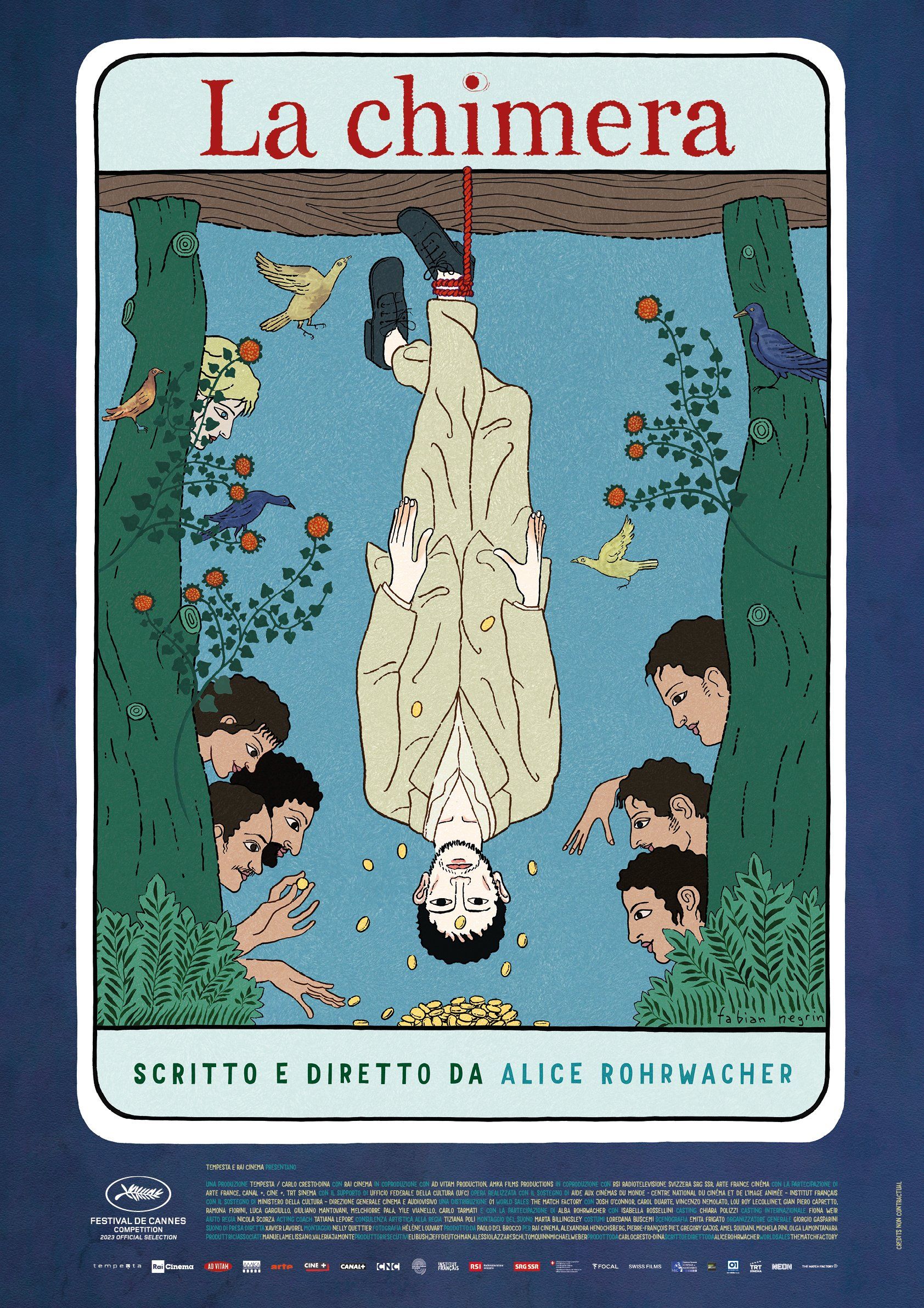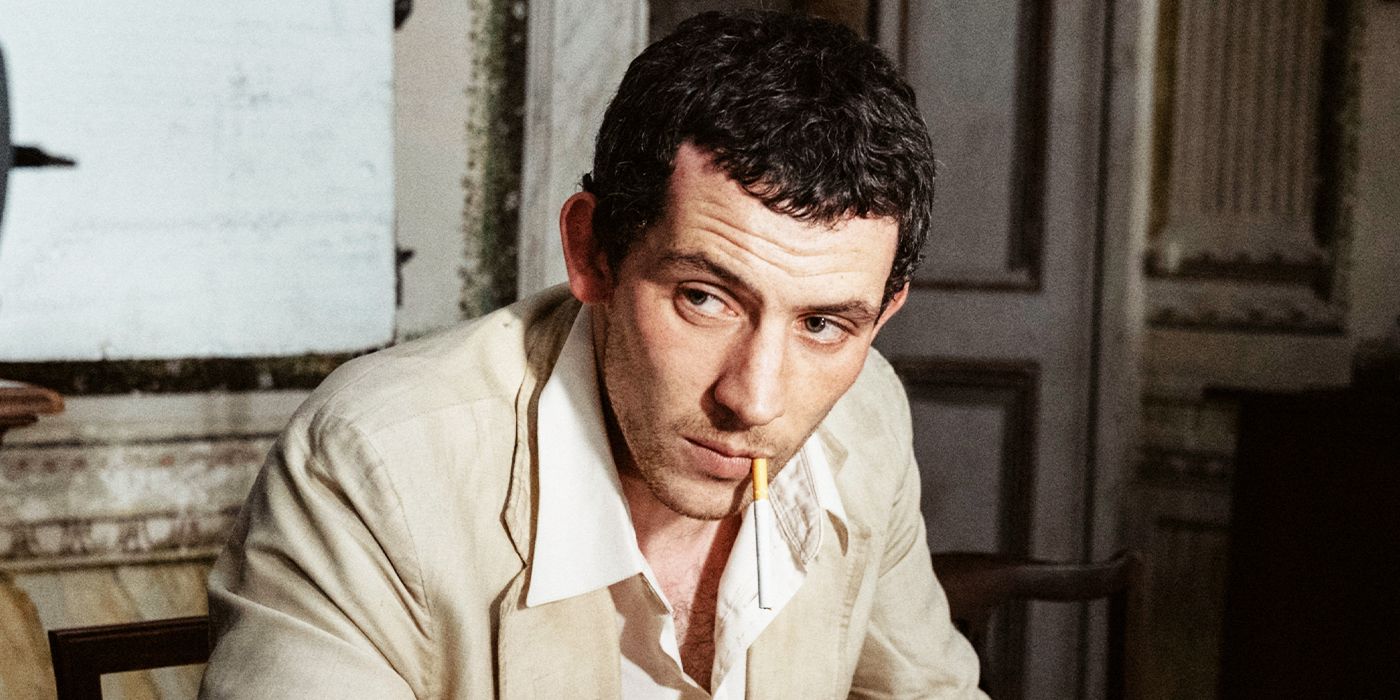The Big Picture
- Alice Rohrwacher’s La Chimera subtly explores magic, history, and death in a gentle yet vibrant manner.
- Though supposedly drawing from Indiana Jones, it keeps the adventure on the margins and delves increasingly into melancholy.
- La Chimera is a transcendentally tragic tale of mourning, new beginnings, and finding treasures in the darkness.
Near the end of writer-director Alice Rohrwacher’s quietly spellbinding feature La Chimera, there is a moment where everything that preceded it comes into focus. It is the type of sequence that is already up there as one of the better finales of 2024, as it combines all the flashes of a painful past and the path forward into something subtly explosive. Even though this year is already not lacking for great endings and La Chimera technically already premiered at the Cannes Film Festival last year, it’s still one of the most interesting and illuminating films that will come out this year as well.
La Chimera
A group of archaeologists and the black market of historical artifacts.
- Release Date
- March 29, 2024
- Director
- Alice Rohrwacher
- Cast
- Josh O'Connor , Carol Duarte , Vincenzo Nemolato , Isabella Rossellini
- Runtime
- 130 Minutes
- Main Genre
- Comedy
- Writers
- Josh O'Connor , Carol Duarte , Vincenzo Nemolato , Isabella Rossellini
Now releasing through Neon, it is finally getting its moment in the sun even as it is a film built around what lies in the vast darkness in a world beneath our own. It is unhurried in its pacing, but that only makes it all the more impactful when the threads tie together after rooting around in the dirt. A gentle film about magic, history, and death that feels like it could slip through your fingers, La Chimera becomes an unexpectedly vibrant work that slowly yet decisively wraps you in its spell. When you too grab hold of it, you find something sublime.
What Is 'La Chimera' About?
This all begins with a dream that is also a memory. Arthur, played by Josh O'Connor at his very best, is returning home on a train and having visions of someone he has lost. When he awakens, he seems less than pleased about the reality that greets him. He has nothing but the clothes on his back which, as is remarked by someone on the trip, certainly seem to smell. Though angered by having this pointed out to him, Arthur continues on until he finds himself in Tuscany. He seeks out Flora, perfectly played by the legendary Isabella Rossellini, who he is connected to in loss. He reacquaints himself with the surrounding Italian region in a profound sense, as he can pinpoint the graves of those who are buried there. His power also feels like a curse as he seems drawn to a past and entire world that he still remains agonizingly distant from.
Arthur soon rejoins a merry band of grave robbers who use his abilities to steal valuables from these resting places that they can sell for cash. There is much that can feel a little meandering early on in the movie, but this is all soon put aside as greater meanings are gradually excavated. Though their discoveries bring small moments of joy to the group, including in an effective montage that sees them getting up to this all over the land, it feels fleeting. Arthur begins to form a connection with Italia, played by a similarly spectacular Carol Duarte, but there remains something in his past that keeps pulling him away from what could be happiness in the present. The experience is humorous just as it remains haunting.
This may sound like something that is more ethereal than it is driven by a conventional narrative. That is because it is. It is not a film that will hold your hand as it is instead challenges you to reflect on the visual storytelling Rohrwacher remains in complete command of. A moment where we linger beneath the water after something has been thrown into it speaks infinitely more than it would have if a character spelled everything out to you. It is in these moments where O'Connor, while often similarly light on words, says so much just in the slivers of brief joy Arthur finds in a world that has become defined by loss. He and Rohrwacher are operating in beautiful synchronicity, challenging us to reflect on the more metaphorical landscapes that the characters are wandering through just as they dig below the ground of the literal ones. It is about the searching as much as it is what is found.
The film is one which Rohrwacher has said, perhaps with a slight cheekiness, is heavily inspired by elements of the original Indiana Jones, and you can get the sense that there is a sense of adventure existing on the margins. It always stays there as we see the group going about their business, to the point where it starts to feel more routine and ordinary. What is most important is that this is something that Rohrwacher captures with an eye for realism, as well as the stunning cinematography of Hélène Louvart, relying less on magical flair than she does more reflective moments. The most riveting and flooring moment comes when we don’t see any of the characters at all. Instead, the camera breaks away from them to sit inside one of the tombs this group is breaking into. We see what happens as it is exposed to the air and the way this action alone feels like something is being lost due to a presence from a different time rushing in. There are small hints of peace to be found, but it is forever fragile.
'La Chimera' Is a Beautiful Film About Time, Loss, and Love
That Arthur and company then come crashing in is merely an extension of this. Without ever spelling things out, it is clear that Rohrwacher is interested in our relationship with the past on a personal and almost spiritual level. She never judges her characters, as there is immense affection and understanding of why they are seeking a sort of solace with this history, just as there is a sense of sadness about the way they are going about it. One key turning point comes between Italia and Arthur, with the two initially growing close following a party, before the former recoils upon realizing what he has been getting up to these days. It will then fall to each of them to see what path they will take in their lives. You hope for their reconciliation, but it is clear that melancholy waits in the wings. You can't run from it, but you can embrace it.
To say the real treasure of La Chimera was about the friends we made along the way would be appropriately funny, which the film often itself is in unexpected ways, though still ultimately falls short of the multiplicity of emotions Rohrwacher uncovers. From the moment when Arthur makes a big decision for himself, tossing away the past, so it can be protected from those in the present, the film then becomes less about mirth than it is about mourning. A mourning for those we’ve lost, who we once were when we were with them, who we are struggling to be now, and how we can hope to dig our way back to the past.
That Arthur gets a chance at a new life, charmingly cutting his hair and doing everything he can to give it his best shot, before stepping away once more makes it all the more transcendentally tragic, just as it is ultimately freeing. Though full of whimsy at times, it is not something that goes down easily. Instead, it digs and digs before digging some more. What the film and Arthur then finds is a treasure more valuable than anything else they uncovered before then. From the depths of darkness, it emerges into the vibrant light.

La Chimera
La Chimera is a treasure of a movie where magic and reality become intertwined as it builds to one of the best endings of the year.
- Alice Rohrwacher approach is quietly spellbinding, bringing us into the past just enough with all the beauty and pain there is to be found there.
- Josh O'Connor is at his very best, speaking volumes with just his expressions even when saying little words.
- Both the ending and one scene where we pull back away from the characters capture what is so breathtaking about the experience.
La Chimera is now in theaters in the U.S. Click below for showtimes.

